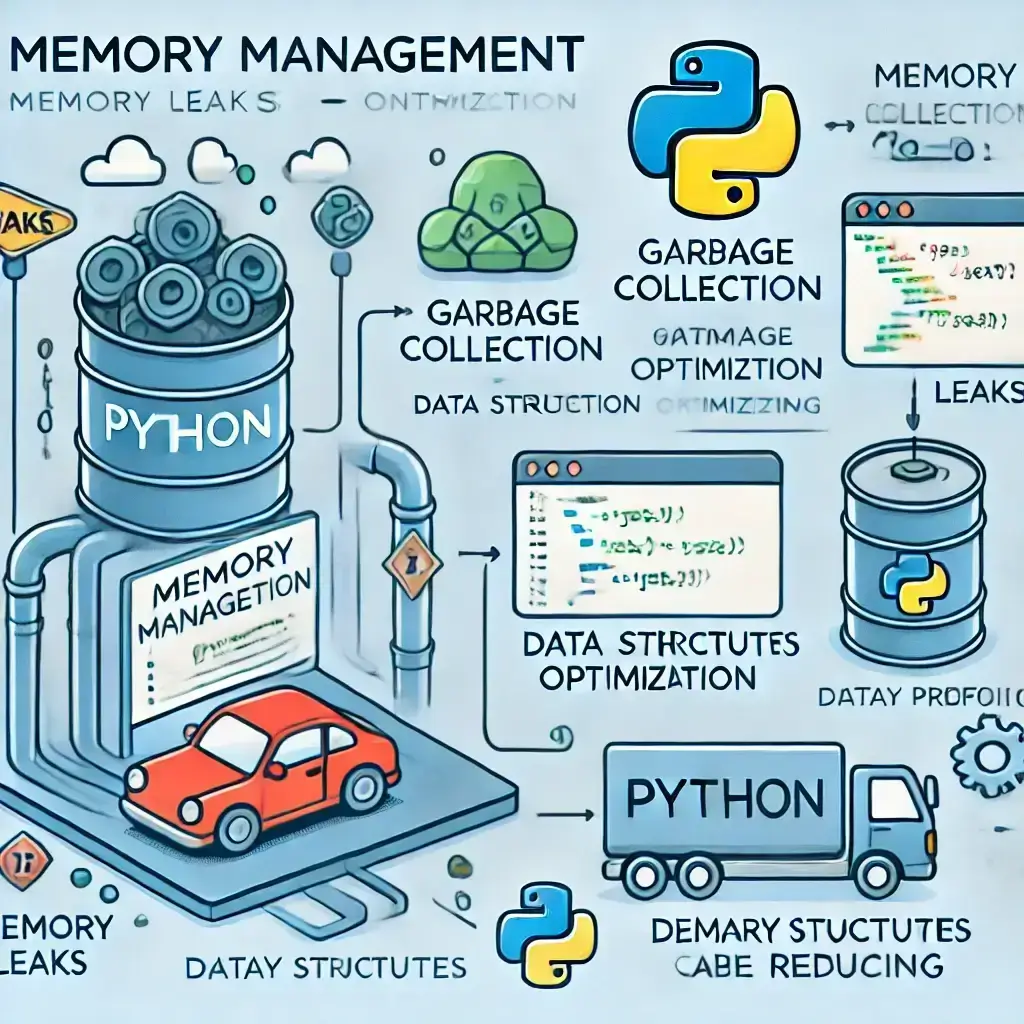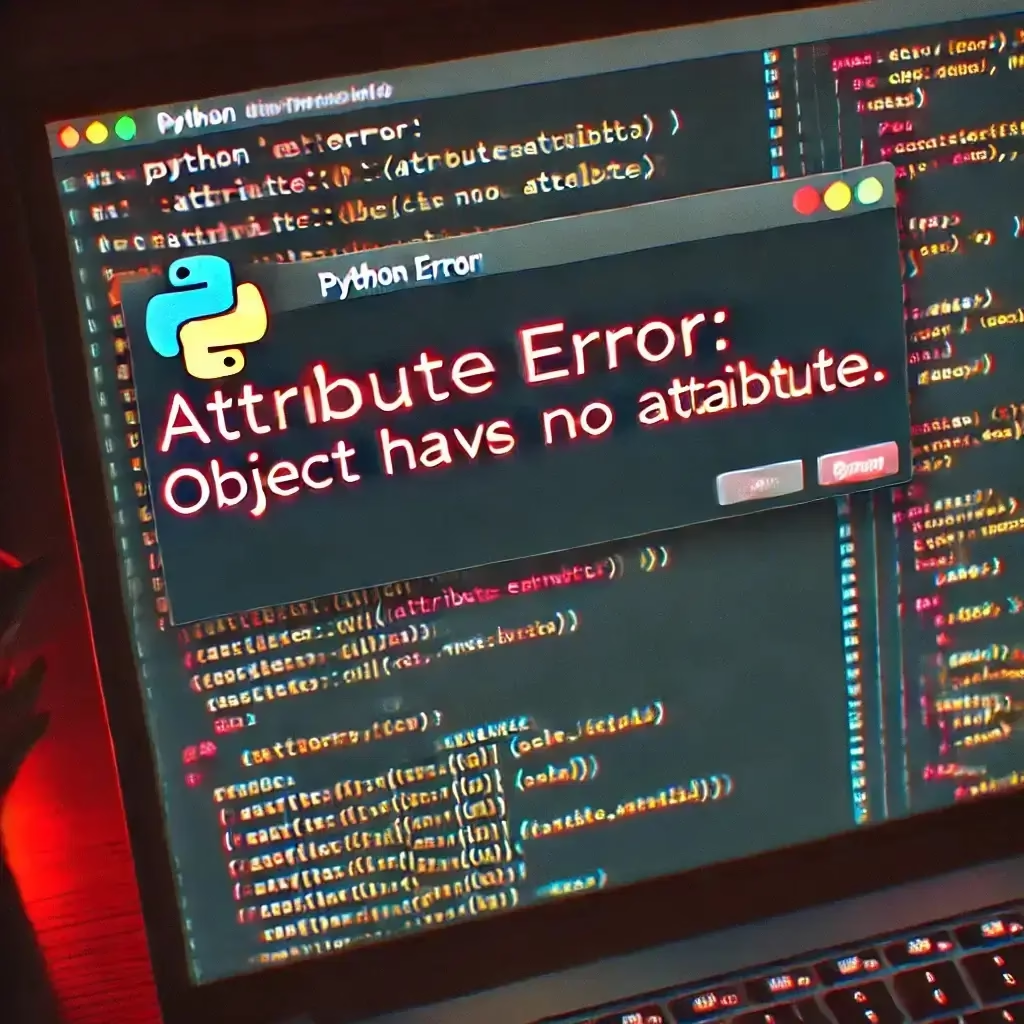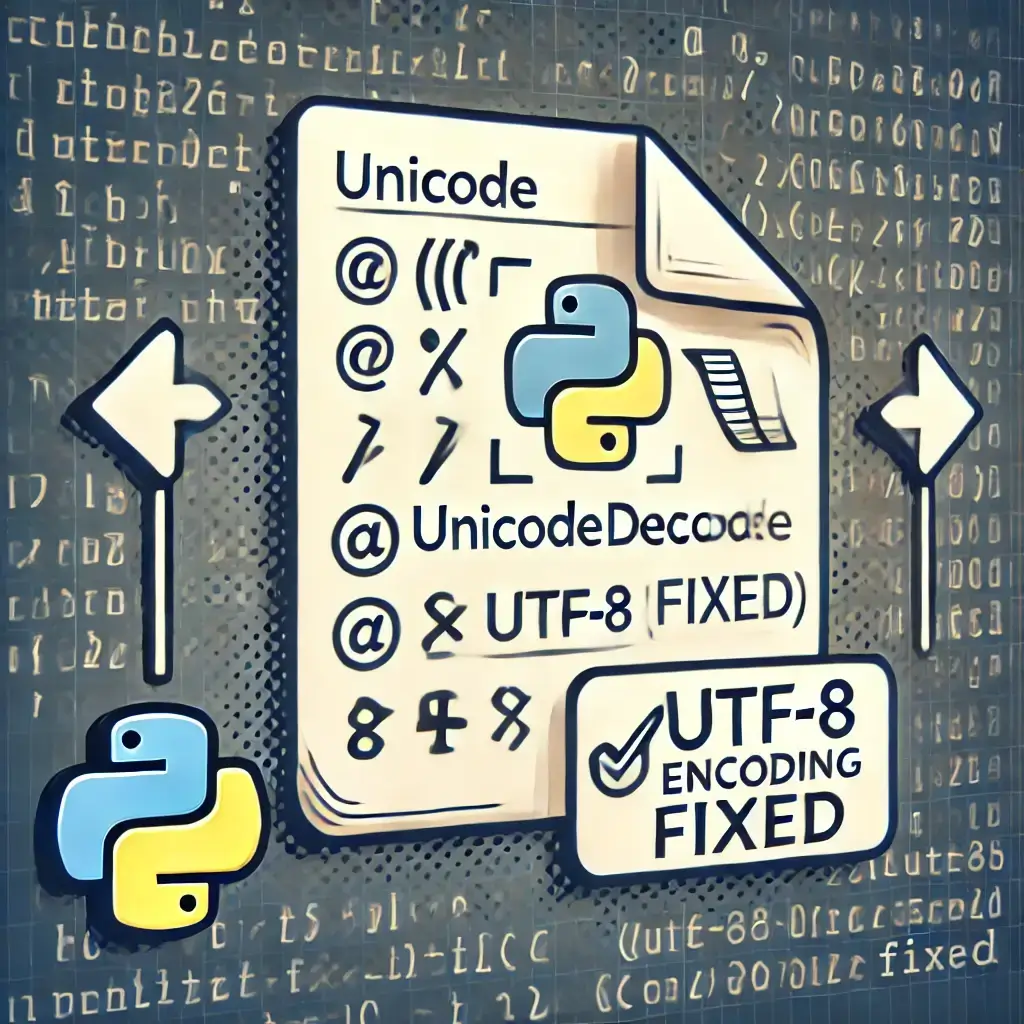Introduction
Python memory exhaustion errors can be a frustrating, especially when dealing with large data sets, machine learning models, and memory intensive task. If your Python script crash due to MemoryError or excessive RAM usage, it is time to optimize your memory management.
In this guide and article , we will explain common cause of Python memory exhaustion errors and will provide effective solutions to improve performance. Whether you are beginner or experienced developer, these strategies will help you to write efficient and scalable Python code.
Table of Contents
- Common Causes of Python Memory Exhaustion Errors
- Processing massive Data in the Memory
- Inefficient Data Structures
- Memory Leaks
- Unoptimized Loops and Recursion
- Inefficient Object Handling
- How to Fix Python Memory Exhaustion Errors
- Use Generators Instead of Lists
- Optimize Data Structures
- Delete not using Variables
- Process Data in Chunks
- Use Multiprocessing for Parallel Processing
- Limit Memory consumption with resource Module
- Use memory_profiler to Debug Memory consumption
- Frequently Asked Questions (FAQs) for Python Memory Exhaustion Errors
- Conclusion
Common Causes of Python Memory Exhaustion Errors
Understanding why your Python script run out of memory is the step to fixing issue. Here are the some common causes:
👉 Related Read: 7 Fixes for Why Is My Python Code Not Running?
📖 External Resource: Python Official Documentation – Memory Management
1. Processing Large Data in Memory
Loading large data sets into memory using pandas, NumPy, and list structures can quickly exhaust available RAM.
👉 Related Read: Python FileNotFoundError: 7 Powerful Ways to Fix It Fast
📖 External Resource: Handling Large Datasets with Pandas
2. Inefficient Data Structures
Using lists, dictionaries or sets inefficiently can lead to unnecessary memory usage.
3. Memory Leaks
Keeping unused objects or not properly managing references can cause memory to accumulate over time.
👉 Related Read: 10 Proven Ways to Debugging Python in PyCharm and VS Code
📖 External Resource: Python Garbage Collection
4. Unoptimized Loops and Recursion
Deep recursive calls and excessive iteration without memory optimization can contribute to memory exhaustion.
5. Inefficient Object Handling
Keeping the large objects in memory longer than needed leads to higher memory usage.
How to Fix Python Memory Exhaustion Errors
1. Use Generators Instead of Lists
Instead of storing all data in list, use generators to yield information lazily, reducing memory consumption.
Example:


✅ Benefit: Efficient memory usage for large data files.
📖 External Resource: Python Generators
2. Optimize Data Structures
Instead of lists, use iterators, sets, and NumPy arrays, which is more memory efficient.
Example:


✅ Benefit: Reduces memory footprint while improving performance of code of python.
📖 External Resource: NumPy Documentation
3. Delete Unused Variables
Unused objects consume memory that is not required. Use del and gc.collect() to free up space.
Example:


✅ Benefit: Prevents memory leaks optimizes RAM usage.
4. Process Data in Chunks
For massive datasets, use chunk processing instead of loading many things at once.
Example (Pandas – Reading Large CSV Files in Chunks):


✅ Benefit: Prevents memory overloading when handle large data.
👉 Related Read: Python Crash Fix: 7 Solutions for Jupyter & Spyder Issues
5. Use Multiprocessing for Parallel Processing
Distribute the workload across multiple CPU cores to avoid the overloading RAM.
📖 External Resource: Python Multiprocessing
FAQs for Python Memory Exhaustion Errors
A memory leak happen when memory is allocated but never free, leading to excessive RAM usage. This occurs due to circular references or persistent global variables.
Use dask for parallel processing.
Train models with smaller batch sizes.
Clear variables after training (del model, gc.collect()).
Yes, Python use Garbage Collection (GC) to free not used objects. However, manual optimization is sometimes required.
While increasing RAM can help to optimize your Python code is a better long-term solution for memory-intensive works.
A MemoryError happen when Python attempt to allocate the more memory which is available in the system, resulting in program crashing or halting due to excessive memory consumption.
You can optimize memory efficiency by using efficient data structures like numpy arrays, leveraging generators, processing data in chunks, & utilizing memory profiling tool like memory_profiler.
Garbage collection is a Python automatic process of free up some memory by removing object that are no longer in use right now . The gc module help to manage the collection of garbage in the Python.
You can handle datasets by reading them in chunks, using this libraries like Dask or PyArrow, and storing and processing them on disk rather than in the memory.
Conclusion
Python memory exhaustion errors can be a frustrating, but with right memory management steps, then you can significantly reduce RAM consumption and improve your code performance.
By implementing these strategies, you can prevent memory crash & write more efficient code, scalable Python scripts.
👉 Related Read: How to Install Python: Easy Setup Guide for Beginners
📖 External Resource: Python Performance Optimization Guide



